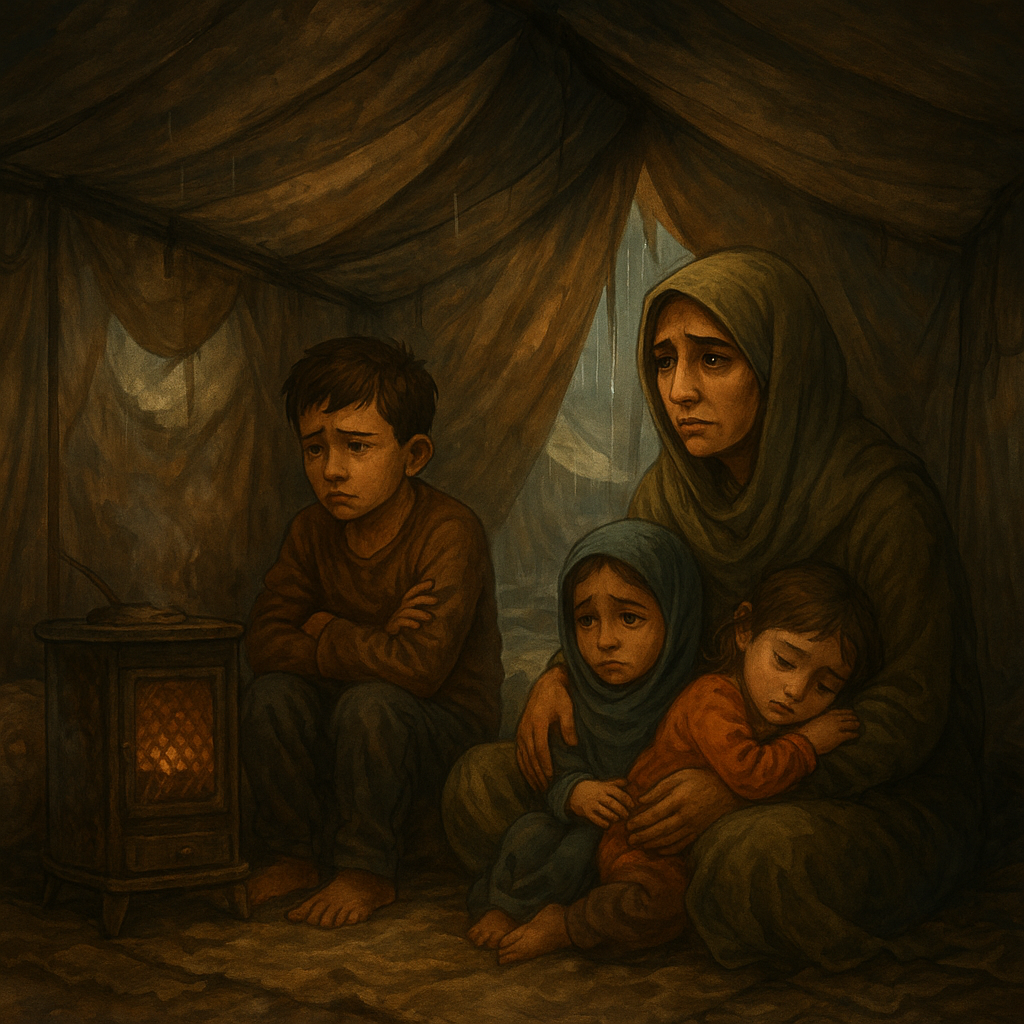Tent Roof: Rubaa and Her Children Await a Merciless Winter in Arsal
In the refugee camps of Arsal, on the Lebanese-Syrian border, nothing resembles a home. No walls, no doors, no windows to shut. There, Rubaa lives with her three children in a canvas tent, its edges flapping in every storm, its roof trembling with each winter wind.
Rubaa, a Syrian refugee from rural Homs, fled to Lebanon eight years ago. She was pregnant with her middle son when she crossed the border on foot. I thought we’d go back in a month… now my son, born in this tent, is in third grade. He’s never seen a real house,
she said, gazing at her trembling roof.
When I visited the tent, the ground was covered in plastic sheets, and water seeped in from the corners. In one corner, a rusty metal stove burned a few sticks. Sometimes we have nothing to burn, so we huddle together for warmth,
she added, wrapping her daughter’s feet with her worn dress.
I asked her about the hardest night they lived through. She swallowed her tears and said: The night of the big snowstorm—our roof collapsed, our clothes were soaked, and my son had a fever… I thought I would lose him, and no one would hear us.
In the camp, there’s no hot water, no reliable electricity, and no heating except for what little wood and blankets they manage to find. Winter is an enemy we have no weapon against… only patience,
Rubaa said.
In one corner of the tent hangs an old photo of her husband, missing since the start of the war. He said he’d be back in a week… 400 weeks have passed, and he never returned. We don’t know if he’s alive or martyred,
she murmured.
The scene brought to mind the words of Nizar Qabbani:
In the camp… there are no names, no dreams, no warmth.
We carry a homeland on our shoulders… walking barefoot toward disappearance.
According to UN reports, more than 70,000 Syrian refugees live in unfit tents in Arsal. Winters there are among the harshest for displaced families, with temperatures dropping below zero and respiratory illnesses spreading among children.
Rubaa’s three children don’t know what a “winter break” or “school heating” means. They walk to school through muddy paths in torn shoes and with soaked notebooks. Still, Rubaa insists on educating them. War took everything—but I won’t let it take their minds,
she said firmly.
I asked if she ever thought of returning to Syria. She replied: Return to where? My house is destroyed. My village is rubble. If there were a safe place, I would go. But I don’t want to die with my children under new ruins.
Despite all this pain, Rubaa still smiles whenever one of her children laughs. Their laughter is the real roof that protects me from collapse,
she said, embracing her little daughter.
At the end of the visit, I asked her: If you had one wish, what would it be?
She replied: A real door that closes… just a door and a tent that doesn’t let the sky leak in.
In Arsal, Syrian families are not just waiting for bread… they’re waiting for a roof that doesn’t shake, and a morning that doesn’t begin with cold and fear.

